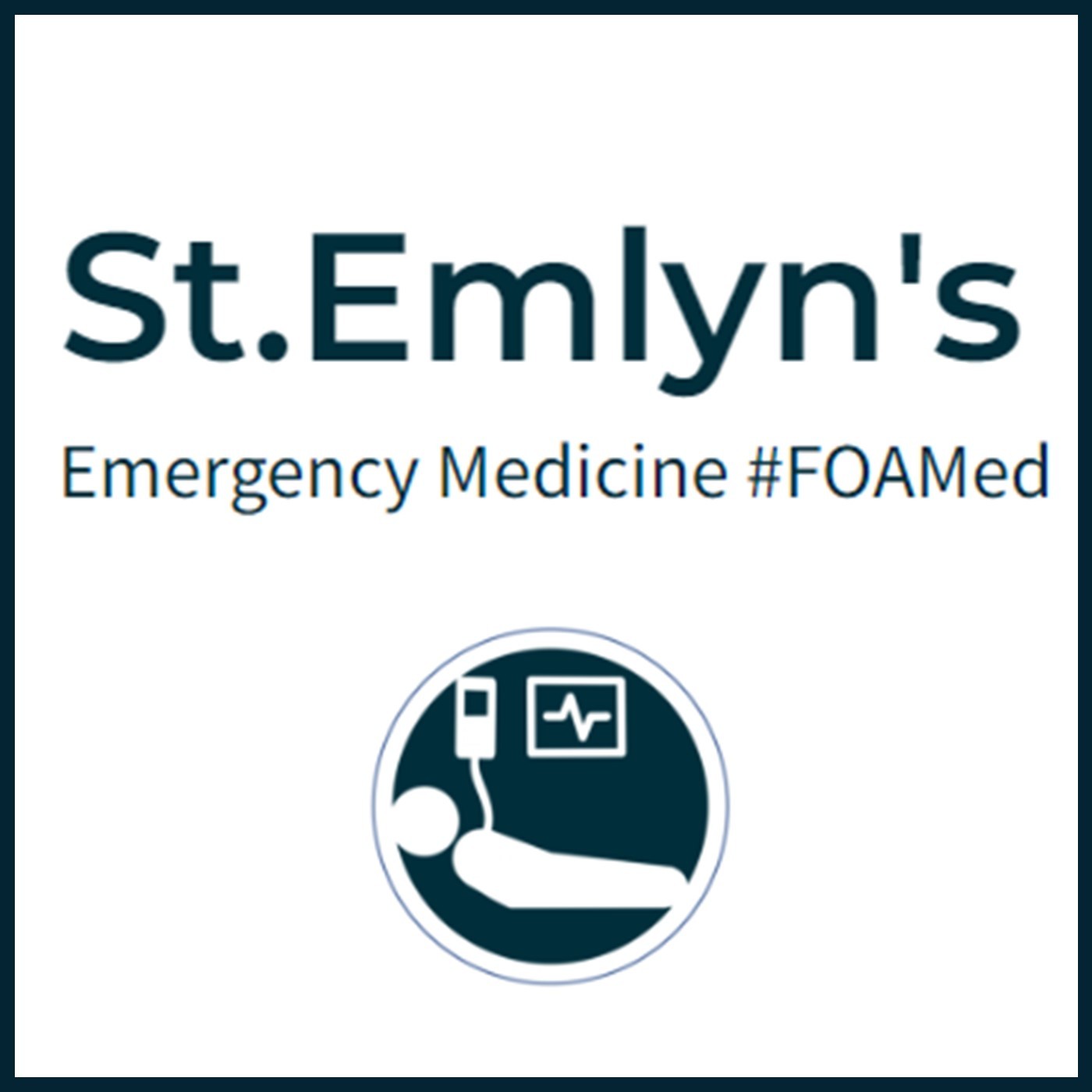
1.3M
Downloads
273
Episodes
A UK based Emergency Medicine podcast for anyone who works in emergency care. The St Emlyn ’s team are all passionate educators and clinicians who strive to bring you the best evidence based education. Our four pillars of learning are evidence-based medicine, clinical excellence, personal development and the philosophical overview of emergency care. We have a strong academic faculty and reputation for high quality education presented through multimedia platforms and articles. St Emlyn’s is a name given to a fictionalised emergency care system. This online clinical space is designed to allow clinical care to be discussed without compromising the safety or confidentiality of patients or clinicians.
Episodes

Saturday Sep 05, 2015
Ep 55 - Communicating (not Breaking) Bad News with Liz Crowe
Saturday Sep 05, 2015
Saturday Sep 05, 2015
Communicating Difficult News in Emergency Medicine: A Guide from St Emlyns
Introduction
Effective communication of difficult news is a critical skill in emergency medicine. This guide, based on a discussion between Iain Beardsell and Liz Crowe, explores best practices for delivering challenging information to patients and their families, emphasizing compassion and clarity.
The Importance of Language
The terminology used when delivering bad news can significantly impact the recipient's perception. Liz Crowe suggests avoiding phrases like "delivering bad news" or "breaking bad news," as they imply a one-time transaction. Instead, "communicating difficult news" emphasizes an ongoing process that includes listening, support, and engagement. This language shift helps set a compassionate tone and encourages continuous dialogue, reassuring families that they are not alone.
Building a Supportive Relationship
The goal of communicating difficult news is not just to convey information but to build a supportive relationship. Unlike a delivery person who leaves after a transaction, healthcare professionals should remain engaged, ensuring that families feel heard and supported. This involves being present, offering a listening ear, and providing continuous support, which helps families process the news and feel significant during a difficult time.
Self-Awareness in Communication
Healthcare professionals must be self-aware of their emotions and biases when delivering difficult news. Liz points out that under stress, professionals might default to using medical jargon, which can distance them from the family. Recognizing one's emotional triggers and managing them is crucial for maintaining a compassionate demeanor. Self-awareness also involves understanding personal limitations and seeking support when needed, ensuring that caregivers can provide the best possible support to families.
Creating the Right Environment
The environment where the news is delivered plays a crucial role. A private, quiet space where everyone can sit comfortably helps create a sense of safety and respect. Healthcare professionals should take a moment to prepare mentally before the conversation, organizing their thoughts and emotions. This preparation helps in delivering the news clearly and calmly, reducing the chances of miscommunication.
Nonverbal Communication and Setting the Tone
Nonverbal cues, such as facial expressions and body language, significantly influence the tone of the conversation. Professionals should approach with a serious and empathetic demeanor, setting the expectation for a difficult conversation. A somber expression can help prepare families for the news, as opposed to a smile, which might create false hope. The first and last things said are particularly memorable, so they should be chosen carefully to ensure clarity and compassion.
Clarity and Honesty
Clarity is paramount when delivering difficult news. If a patient has died, it is essential to state this clearly and directly, avoiding euphemisms and medical jargon. Information should be given in small, digestible pieces, allowing families to process it. Professionals should also be prepared to repeat or clarify information, as initial shock can make it difficult for families to absorb all details.
Handling Emotional Reactions
Emotional reactions are natural and expected. Liz advises against immediately offering tissues, as this can imply discomfort with the family's grief. Instead, give them space to express their emotions. Healthcare professionals should be prepared for a range of responses, from tears to anger, and maintain a supportive presence throughout. Validating the family's emotions is crucial, as is allowing them time to grieve.
Continuous Engagement and Follow-Up
The conversation should not end after delivering the news. Continuous engagement is vital, including checking in with the family periodically and being available for follow-up questions. This ongoing support helps families feel cared for and reassures them that they are not left to navigate the situation alone. Follow-ups can include arranging further meetings, providing written materials, or referring to counseling services.
Special Considerations for Children
When children are involved, the information should be age-appropriate and delivered with care. Liz suggests involving children in the conversation, as excluding them can lead to confusion and mistrust. It is essential to use simple, clear language and to be honest about the situation. Reassuring children that it is okay to feel sad or confused helps them process their emotions.
Respecting Cultural and Religious Beliefs
Cultural and religious beliefs can significantly influence how families perceive and process difficult news. Healthcare professionals should respect these beliefs and tailor their communication accordingly. This might involve understanding specific rituals or customs and involving spiritual advisors when appropriate. Respecting these practices provides comfort and shows respect for the family's values.
Conclusion
Communicating difficult news is a challenging but essential aspect of emergency medicine. It requires empathy, clarity, and a commitment to ongoing support. By focusing on these elements, healthcare professionals can help families feel supported and understood during some of the most challenging moments of their lives. The insights shared by Liz Crowe and Iain Beardsell emphasize the importance of a compassionate and structured approach, ensuring that these conversations are handled with the utmost care and respect.
For more insights on navigating complex topics in healthcare, stay tuned to the St Emlyns blog. We are committed to providing valuable information to support healthcare professionals in their journey of delivering compassionate and effective care.

No comments yet. Be the first to say something!